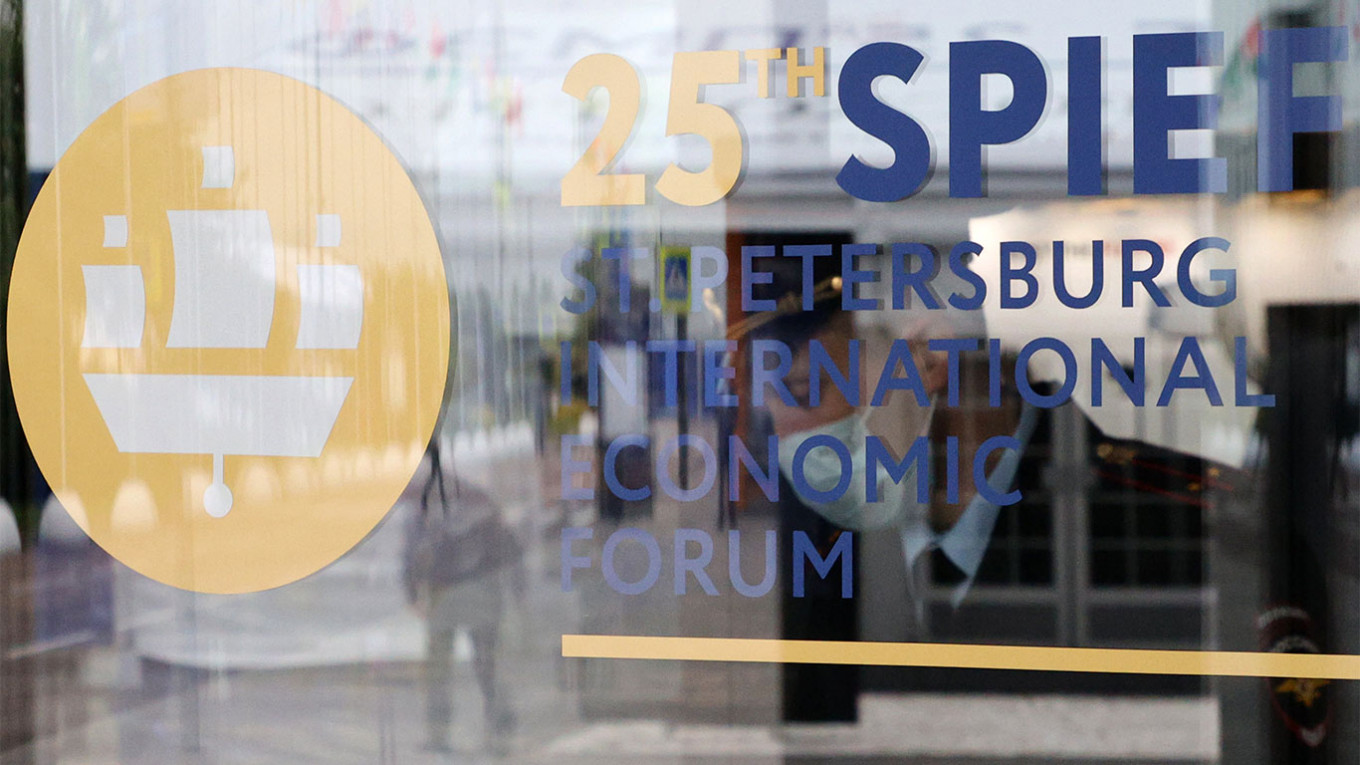The Sankt Petersburg International Economic Forum (SPIEF), Russia's world economy summit, has become the epitome of the country's growing isolation on the international stage in the context of the total war unleashed against Ukraine last year.
The event, held from June 14 to 17, was ignored by companies and policymakers from countries aligned with the EU and G7 economic sanctions against Russia. Faced with this reality, the Kremlin pushed a two-pronged strategic communication effort.
The first was to exhibit a "business as usual" attitude by attracting people and companies from "unfriendly countries" by hyping up bottom-up contacts while lambasting Western governments for wasting cooperation opportunities.
The second was to signal the acceleration of the economic trend Moscow was forced to choose: the pivot away from EU and G7 countries to emerging economies in the Middle East and East Asia.
Open Source Investigations dives into the inner workings of this strategy with a two-part analysis of the context and the implementation.
Spinning Russia's isolation
SPIEF, held annually during the summer in Sankt Petersburg, was for two decades seen as an important gathering for investors worldwide, mainly from Western countries. However, in 2023, the new geopolitical realities kept away most Western companies and official delegations.
A report by Bloomberg reads that SPIEF 2023 organizers struggled to attract prominent political figures, as even some leaders of Russia's former Soviet neighbors have opted to stay away. "Russia's Davos" used to be a magnet for global politicians and investors until the invasion of Ukraine, and now it has become a measure of Russia's deepening isolation.
In response, Russia's first strategy was to try to save face, using a standard narrative of the state propaganda: common business people want to keep open good relations with Russia, but they are blocked by illegitimate governments, which Washington controls.
State media outlets and Kremlin-friendly organizations pushed this strategy openly. Quoting SPIEF organizer, the TASS agency reported that "the United States had among the most sizable delegations at the event, along with attendees from the UAE, China, Myanmar, Kazakhstan, and Cuba". Without breaking down the numbers, TASS added: "Delegations from the UAE, China, India, Myanmar, Kazakhstan, Cuba, and the United States were the most sizable. More than 6,000 representatives from more than 3,000 Russian and foreign companies from 75 countries and territories participated in the Forum's activities".
B-list guest list
Organizers had tried luring high-profile Western guests up to the last minute, the Financial Times reported. However, this effort backfired — all invitees, including former Google CEO Eric Schmidt, refused to accept the invitation and declared their support for Ukraine.
The most senior European leader at the summit was Hungary's foreign minister, Peter Szijjarto, as Budapest is known as a protector of Russian business interests inside the EU and has an ambivalent attitude regarding the war in Ukraine. The only other well-known EU panelist was the former Austrian foreign minister, Karin Kneissl, who made headlines in 2018 when she danced with Putin at her wedding.
Italian media spotted among participants Antonio Fallico, President of Banca Intesa JSC, a Russian subsidiary of Intesa Sanpaolo Group. Fallico is an Italian citizen but has lived and worked in Russia for many years and is under Ukrainian sanctions. He headed the Banca Intesa board in 2003. Also, he was president of the Association of Italian Entrepreneurs in Russia.
Putin's mouthpiece
Beyond the issue of the presence of Western business people and politicians, the name of the moderator that got to ask questions to President Vladimir Putin made headlines, but not in the same way it once did. The organizers failed this time to lure a Western media star.
Over the past decade, SPIEF's main event, the plenary session featuring Vladimir Putin, has been moderated by stars from the Western media, such as CNN's Fareed Zakaria or then-CBS News anchor Charlie Rose. This year, it proved impossible to attract anyone of the same profile, a government official familiar with the preparations for SPIEF told The Moscow Times, a claim confirmed by a former Kremlin official.
SPIEF 2023 culminated in a plenary session with President Putin and Algerian counterpart Abdelmadjid Tebboune. Moderating the discussion was Dmitri Simes.
Dmitri Konstantinovich Simes is a Russian-born US political scientist. A former informal adviser to President Richard Nixon, Simes co-hosts a prime-time news and analysis show on Russian-state-run television network Channel 1. In December 2022, on Channel 1, Dmitri Simes referred to Vladimir Putin's February 21, 2022, announcing the invasion of Ukraine: "This was a speech worthy of Churchill!".










Trackbacks and Pingbacks